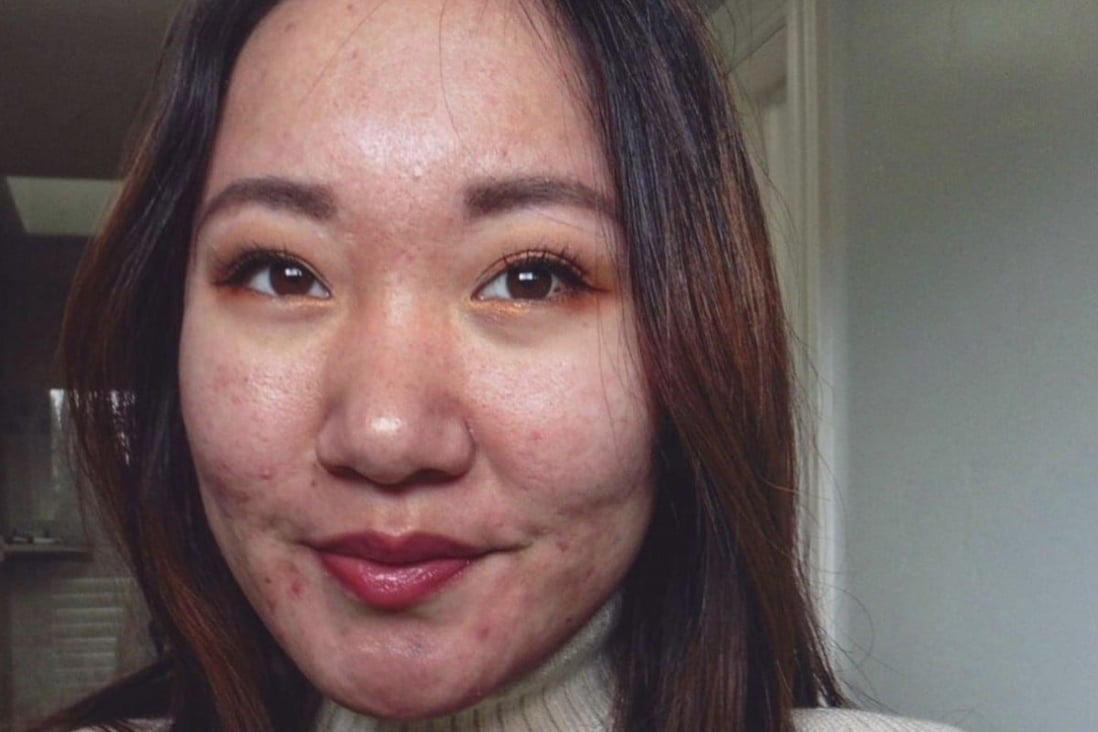
Katie Gu started developing acne at the age of 12. The California-born woman, now 23, says that she grew up feeling insecure and self-conscious as a result.
“I learned how to wear foundation at a young age, listened to well-meaning people tell me to wash my face, drink more water and consume less dairy, and dealt with salespeople at beauty counters urging me to try different skincare products,” says Gu. “I’ve even had people tell me that I was ‘brave’ for showing my skin.”
By the time she graduated from university, her high school friends all had clear complexions. “But my breakouts were still severe. That left me feeling quite defeated.”
As Gu’s breakouts worsened, so too did her emotional pain. She would be talking to someone only to notice them looking at her skin, and she often felt the need to hide under layers of make-up.
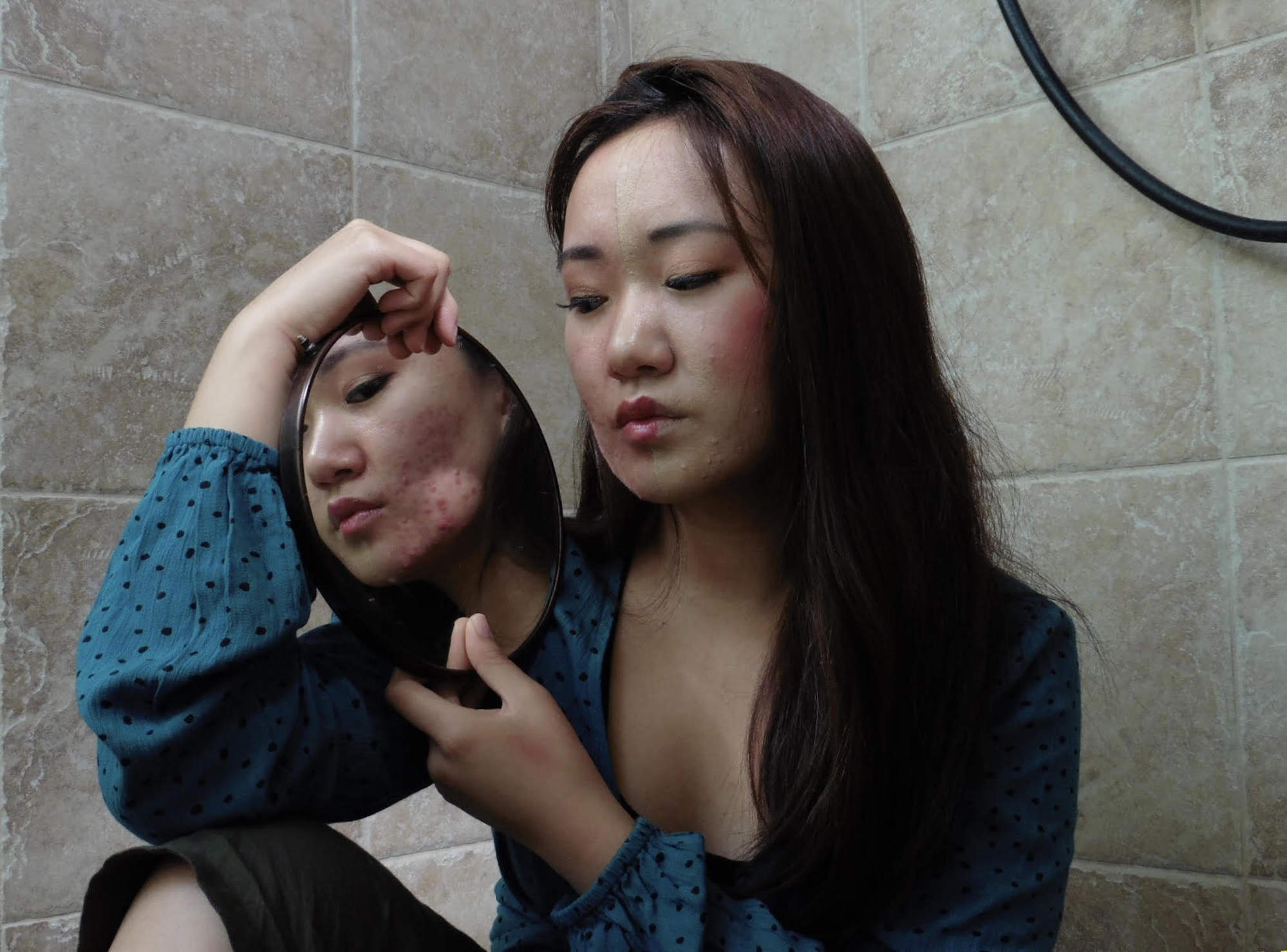
Her complexion was also the subject of family dinner conversations. Although she says she’s a little more confident these days, she still feels uneasy at times – especially since her severe acne makes her stand out where she lives and works as a music teacher in Seattle, in the US state of Washington.
It’s one thing to live with a skin condition but, according to studies, people with acne are also at a higher risk of developing mental health issues. One analysis of a large primary care database in the United Kingdom found that people with acne have a 63 per cent increased risk for major depression within their first year of an acne diagnosis compared to people without acne. These findings were published in 2018 in the British Journal of Dermatology.
Young woman who Instagrams her chronic acne on her daily battle
Another analysis of 42 studies, published in 2020 in the Journal of the American Academy of Dermatology, revealed that adults with acne were more likely to be depressed or anxious than adolescents with acne. The study authors urged doctors to treat acne like the mental health risk that it is.
Even celebrities with acne are not immune to psychological distress, with many opening up about their struggle in recent years. When model and reality television star Kendall Jenner showed up to the 2018 Golden Globe Awards with a visible flare-up, people took to social media to criticise her.
A year later, in an interview with beauty magazine Allure, Jenner shared that she “cried endlessly for days” over the negative comments.
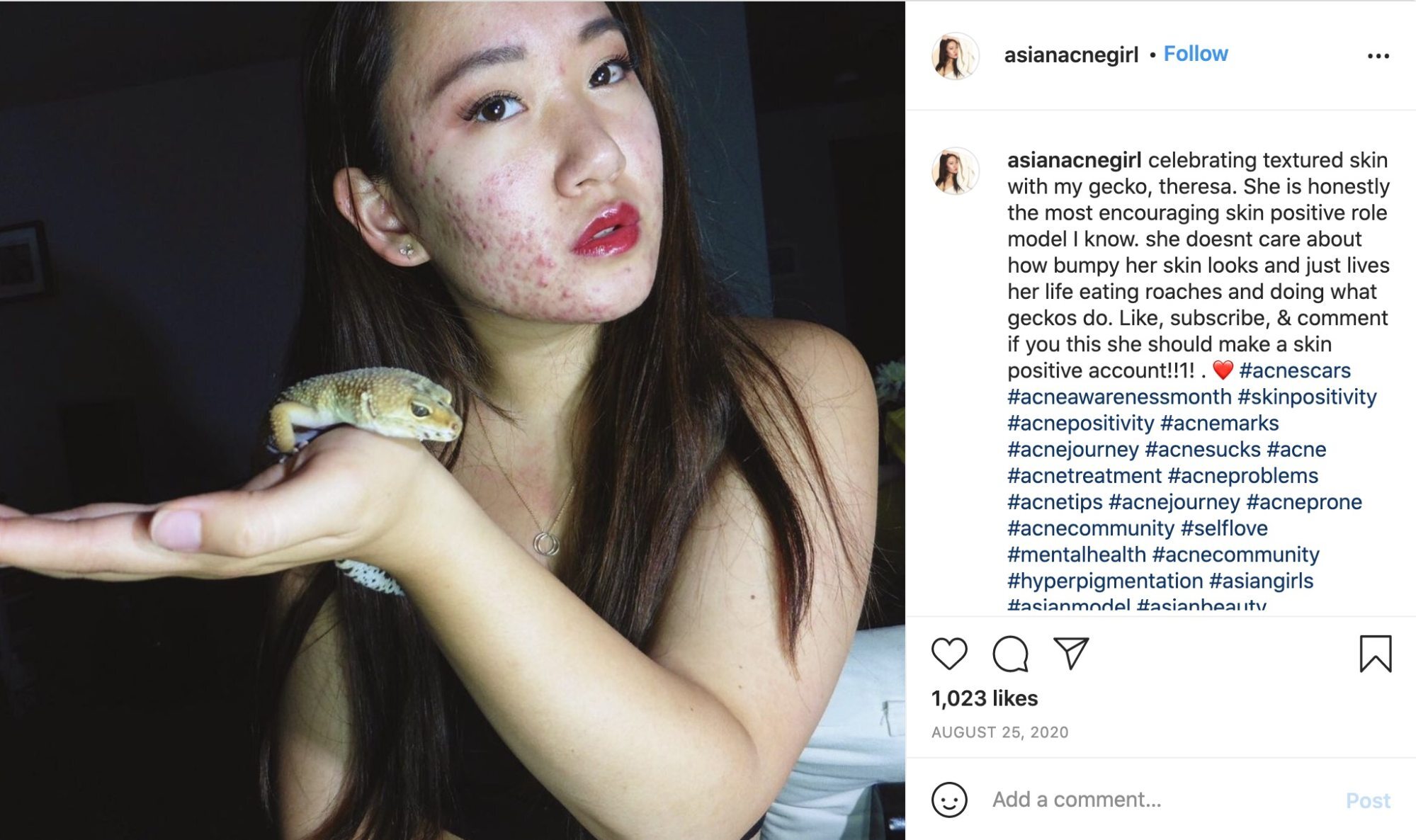
Singapore-based aesthetic doctor Low Chai Ling says that her patients with acne frequently report feeling anxious and depressed. They also suffer from poor self-image and low self-esteem. She believes that such emotions may lead to a decreased quality of life and social isolation.
Low, the founder of SW1 Clinic in Singapore, adds that the stress and anxiety people with acne often experience can sometimes make their skin condition worse.
“The mind and skin are intimately connected, which is why I encourage my patients to use mind-body relaxation and stress-reduction techniques in addition to my treatments when dealing with skin problems,” Low says.
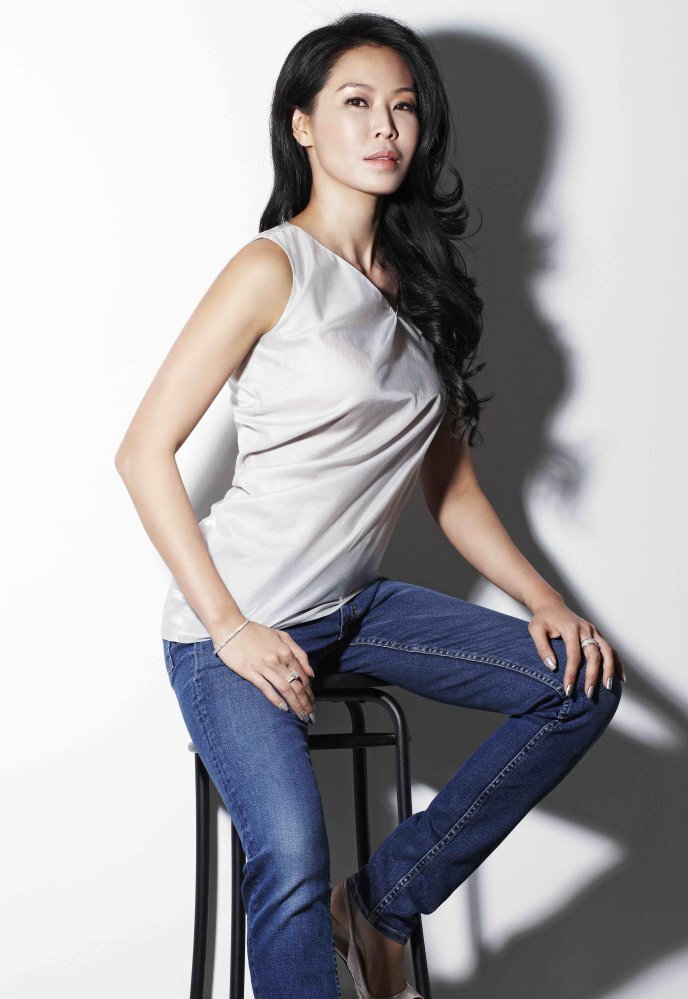
“When you’re relaxed, your body experiences a boost in serotonin levels. Serotonin is sometimes called the ‘happy hormone’ because it stabilises our mood and contributes to feelings of well-being.
“This hormone is also important for maintaining the health of our skin. On the other hand, when you’re stressed and anxious, your hormones get thrown out of balance and this may exacerbate your skin flare-ups.”
To manage your mental health while dealing with acne, Low recommends doing things that make you feel good and help improve your self-esteem. This may include building positive relationships with people who make you feel supported and worthy; volunteering to help others; recognising and focusing on your talents; writing in a gratitude journal; and staying physically active, which is also a mood booster.
Bye bye acne: are superfoods in all-natural skincare key to clear skin?
You can also seek support from pro-acne advocates on social media. Their skin positivity movement, fast gaining popularity on platforms like Instagram and TikTok, aims to remove the shame and stigma surrounding acne, promote mental health and encourage followers to love their skin – pimples, acne scars and all.
Gu is one of many skin positivity influencers. Since starting her Instagram account, asianacnegirl, in June 2019 she has garnered more than 3,600 followers.
Every few weeks, she uploads untouched, bare-skinned photos of herself accompanied by words of inspiration, encouragement and advice. Initially, she set up the account to track the progress of her skin but says it’s now grown into something bigger and more meaningful.
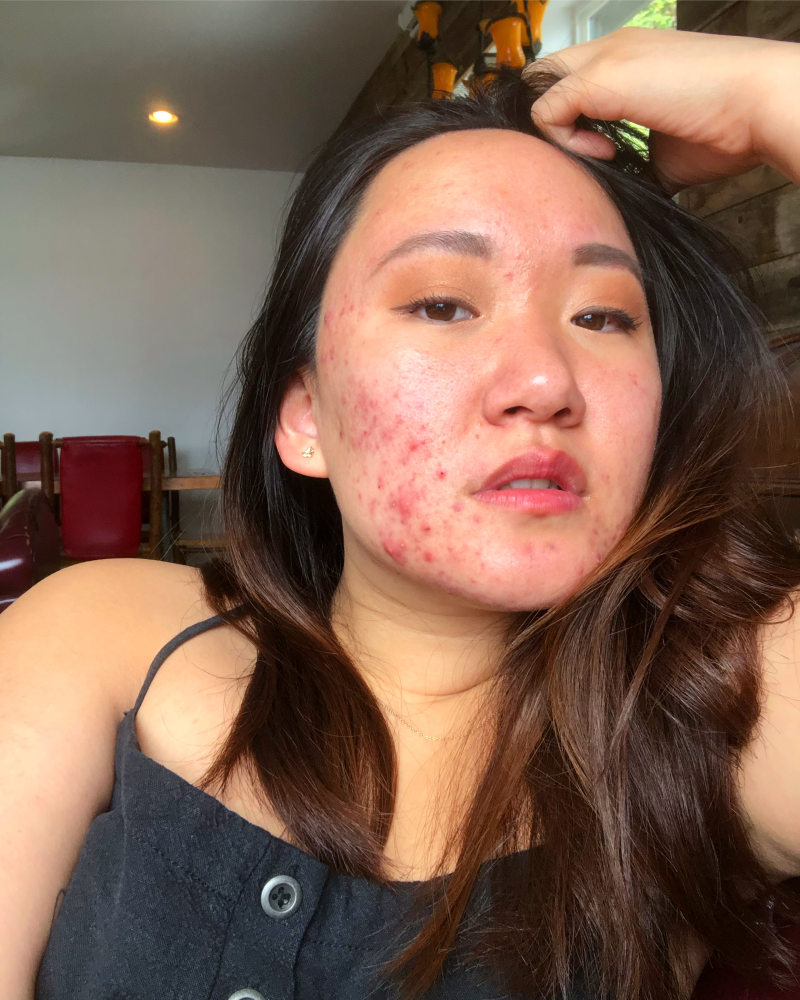
“By the time I was in my last year of university, I realised that I couldn’t erase the marks on my face, so I learned to embrace my natural complexion and began taking barefaced selfies every time I felt guilty about my acne. When I finally posted a picture of myself without foundation on my Instagram account, I felt so liberated. Knowing that I can share untouched selfies with the skin positivity community and not be judged is the best feeling.”
Gu believes her acne is the result of hormones and stress. She saw a dermatologist for a year during high school, but none of the topical treatments worked for her. She is still experimenting with a wide range of products, from simple routines to multi-step Korean routines, to see what works and what doesn’t.
The support and empathy she’s received from her fellow skin positivity advocates – many of whom also have acne – have done wonders for her emotional well-being, she says.
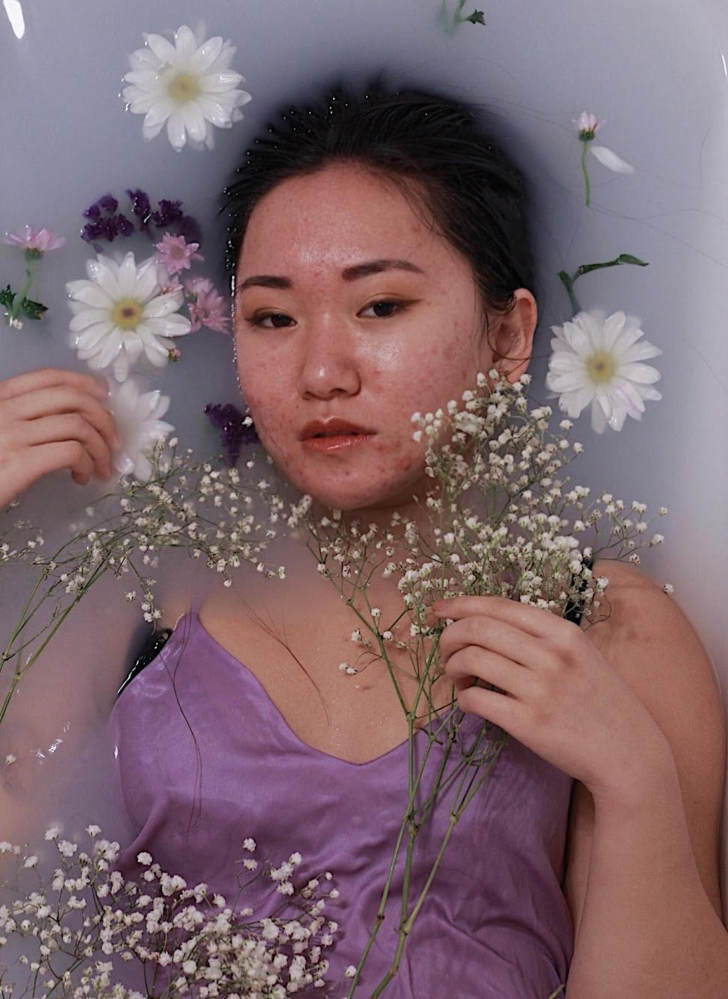
“I’ve learned to be more forgiving and accepting of myself. I’ve gone from hating my skin to loving it, which has been huge for my self-worth. Of course, I still have my bad days, but skin positivity has taught me to smile when I look in the mirror, even when I have a new breakout.”
Like what you read? Follow SCMP Lifestyle on Facebook, Twitter and Instagram. You can also sign up for our eNewsletter here.







